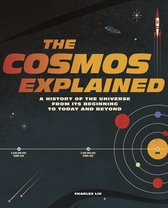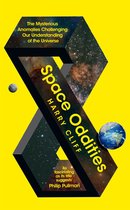Cosmos: A Sketch of the Physical Description of the Universe Ebook Tooltip Ebooks kunnen worden gelezen op uw computer en op daarvoor geschikte e-readers.
Afbeeldingen
Artikel vergelijken
- Engels
- E-book
- 9781465654205
- 16 maart 2020
- Adobe ePub
Alexander Von Humboldt
Bron: Wikipedia. Beschikbaar onder de licentie Creative Commons Naamsvermelding/Gelijk delen."
Samenvatting
In attempting, after a long absence from my native country, to develop the physical phenomena of the globe, and the simultaneous action of the forces that pervade the regions of space, I experience a two-fold cause of anxiety. The subject before me is so inexhaustible and so varied, that I fear either to fall into the superficiality of the encyclopedist, or to weary the mind of my reader by aphorisms consisting of mere generalities clothed in dry and dogmatical forms. Undue conciseness often checks the flow of expression, while diffuseness is alike detrimental to a clear and precise exposition of our ideas. Nature is a free domain, and the profound conceptions and enjoyments she awakens within us can only be vividly delineated by thought clothed in exalted forms of speech, worthy of bearing witness to the majesty and greatness of the creation. In considering the study of physical phenomena, not merely in its bearings on the material wants of life, but in its general influence on the intellectual advancement of mankind, we find its noblest and most important result to be a knowledge of the chain of connection, by which all natural forces are linked together, and made mutually dependent upon each other; and it is the perception of these relations that exalts our views and ennobles our enjoyments. Such a result can, however, only be reaped as the fruit of observation and intellect, combined with the spirit of the age, in which are reflected all the varied phases of thought. He who can trace, through by-gone times, the stream of our knowledge to its primitive source, will learn from history how, for thousands of years, man has labored, amid the ever-recurring changes of form, to recognize the invariability of natural laws, and has thus, by the force of mind, gradually subdued a great portion of the physical world to his dominion. In interrogating the history of the past, we trace the mysterious course of ideas yielding the first glimmering perception of the same image of a Cosmos, or harmoniously ordered whole, which, dimly shadowed forth to the human mind in the primitive ages of the world, is now fully revealed to the maturer intellect of mankind as the result of long and laborious observation. Each of these epochs of the contemplation of the external world — the earliest dawn of thought and the advanced stage of civilization — has its own source of enjoyment. In the former, this enjoyment, in accordance with the simplicity of the primitive ages, flowed from an intuitive feeling of the order that was proclaimed by the invariable and successive reappearance of the heavenly bodies, and by the progressive development of organized beings; while in the latter, this sense of enjoyment springs from a definite knowledge of the phenomena of nature. When man began to interrogate nature, and, not content with observing, learned to evoke phenomena under definite conditions; when once he sought to collect and record facts, in order that the fruit of his labors might aid investigation after his own brief existence had passed away, the 'philosophy of Nature' cast aside the vague and poetic garb in which she had been enveloped from her origin, and, having assumed a severer aspect, she now weighs the value of observations, and substitutes induction and reasoning for conjecture and assumption. The dogmas of former ages survive now only in the superstitions of the people and the prejudices of the ignorant, or are perpetuated in a few systems, which, conscious of their weakness, shroud themselves in a vail of mystery. We may also trace the same primitive intuitions in languages exuberant in figurative expressions; and a few of the best chosen symbols engendered by the happy inspiration of the earliest ages, having by degrees lost their vagueness through a better mode of interpretation, are still preserved among our scientific terms.
Productspecificaties
Inhoud
- Taal
- en
- Bindwijze
- E-book
- Oorspronkelijke releasedatum
- 16 maart 2020
- Ebook Formaat
- Adobe ePub
Betrokkenen
- Hoofdauteur
- Alexander Von Humboldt
- Hoofduitgeverij
- Library Of Alexandria
Lees mogelijkheden
- Lees dit ebook op
- Android (smartphone en tablet) | Kobo e-reader | Desktop (Mac en Windows) | iOS (smartphone en tablet) | Windows (smartphone en tablet)
Overige kenmerken
- Studieboek
- Nee
EAN
- EAN
- 9781465654205
Je vindt dit artikel in
- Categorieën
- Taal
- Engels
- Boek, ebook of luisterboek?
- Ebook
- Beschikbaar in Kobo Plus
- Beschikbaar in Kobo Plus
- Beschikbaarheid
- Leverbaar
Kies gewenste uitvoering
Prijsinformatie en bestellen
De prijs van dit product is 4 euro en 99 cent.- E-book is direct beschikbaar na aankoop
- E-books lezen is voordelig
- Dag en nacht klantenservice
- Veilig betalen
Rapporteer dit artikel
Je wilt melding doen van illegale inhoud over dit artikel:
- Ik wil melding doen als klant
- Ik wil melding doen als autoriteit of trusted flagger
- Ik wil melding doen als partner
- Ik wil melding doen als merkhouder
Geen klant, autoriteit, trusted flagger, merkhouder of partner? Gebruik dan onderstaande link om melding te doen.








